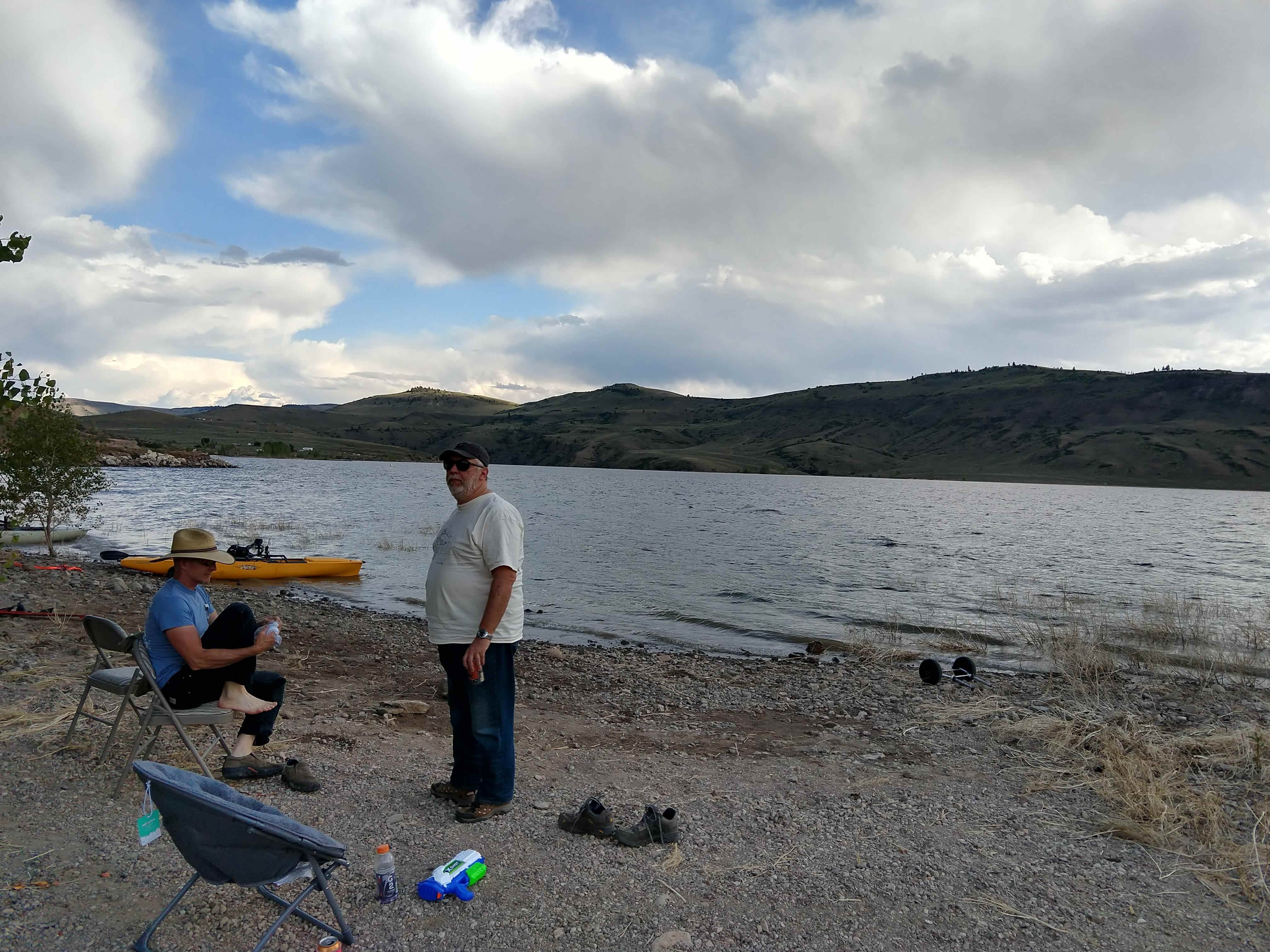The recent developer retreat took place August 20-26th. We arranged it because my friend Luciano Ramalho (Thoughtworker and author of the best-selling Fluent Python) was doing a multi-stop trip to the US (from his native Brazil) and had a gap in his schedule, so he wanted to come to Crested Butte and have a retreat. This seems to have become a pattern: someone I know would like to come here, and we end up organizing a retreat around their trip.
In the past we’ve had retreats around specific subjects, but I’ve found that this created pressure to “move forward” and “be productive” which seems to make the event more like work and less like a retreat, depleting important amounts of fun and relaxation. So with each successive retreat I’ve tried to remove anything that allows us to fall into our normal mindset of urgency.
Initially, I stated that the only “rule” was the “law of two feet” which we use during the Winter Tech Forum, but as the retreat progressed I realized that this is based on the idea of multiple sessions happening at the same time, and thus “two feet” is confusing during a developer retreat. So I revised it to the much simpler maxim of “Do whatever you want.” This seemed to be an important clarification. For example, during several afternoons Luciano comfortably announced that he was going to take a nap (an example that I followed, having just returned from a rather exhausting workshop myself).
With such a lax structure (indeed, as lax as I’ve been able to make it), our cultural training tells us that less would be accomplished, but it seems like we got a lot done, and there were numerous other learning experiences that happened along the way. For me, a particularly valuable multi-day conversation was on coroutines in Python (which also enhanced my research into coroutines for Kotlin). Both Luciano and Jim Baker were very helpful here, and even though I’ve been studying and writing about concurrency on and off for decades, my understanding took a nice jump forward.
We use Slack as a communication platform during a retreat. This includes basics like answering questions about travel and lodging, but also things as simple as announcing that you are heading to a coffee shop or to breakfast in case other people want to join you. And of course, sharing technical information about projects.
The main location for the retreat is the training room for Evolve Coworking. I’m still planning to put up a Chromecast-enabled monitor in that room, as well as painting part of the wall with whiteboard paint.
Luciano wanted to create a foundation for experimenting with the “Distributed Consensus Problem” (an introduction can be found here), using the RAFT algorithm—that link includes a simulation to make it easier to understand. To do this, he ordered and assembled a group of Raspberry Pi computers, each connected to a Unicorn Hat display:
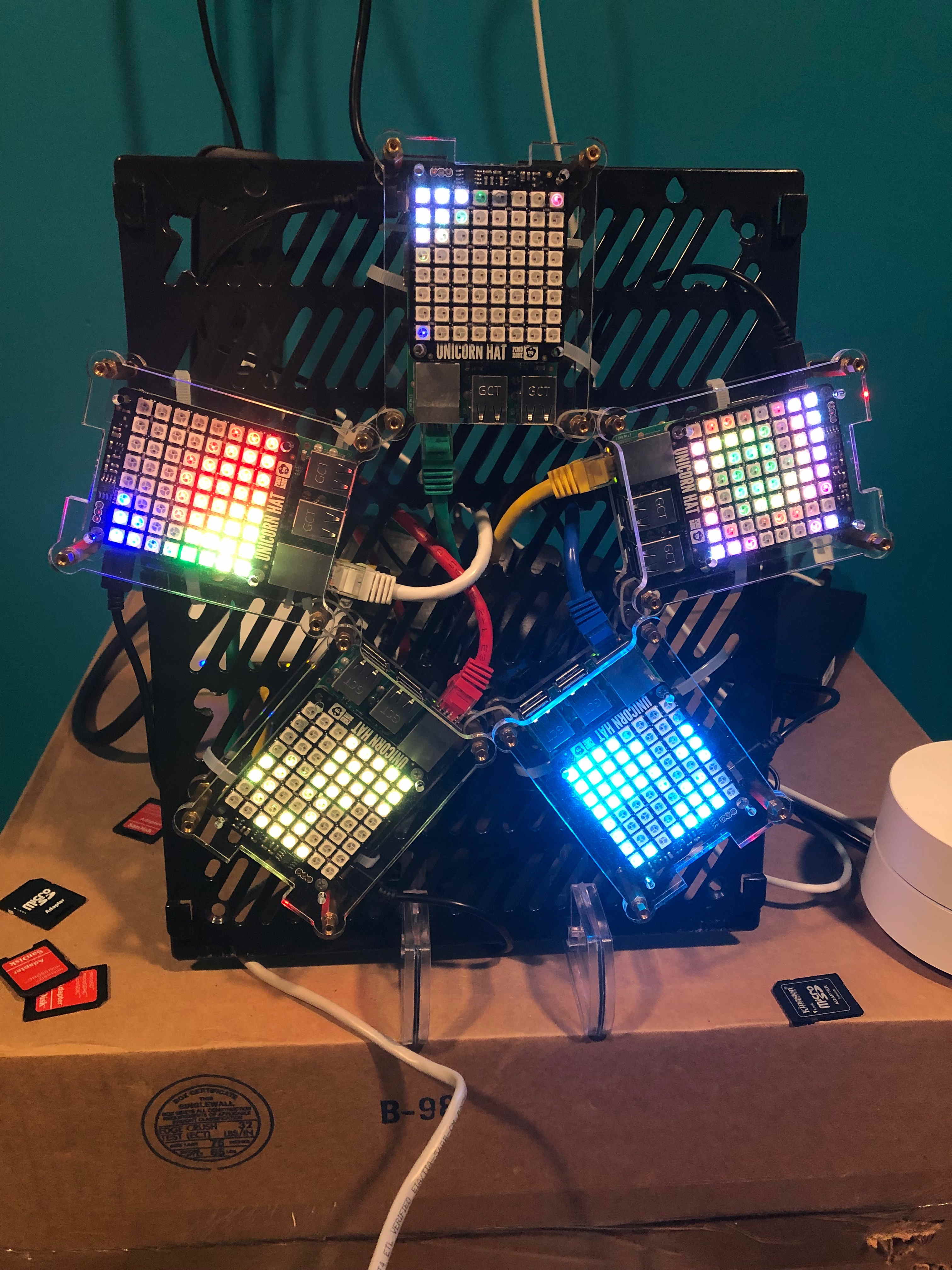
Claudia: The RAFT Simulation Platform
Steve Tarver introduced us to Ansible and created the configuration for Claudia. This was new to several of us, so it was very useful to have Steve there as an expert.
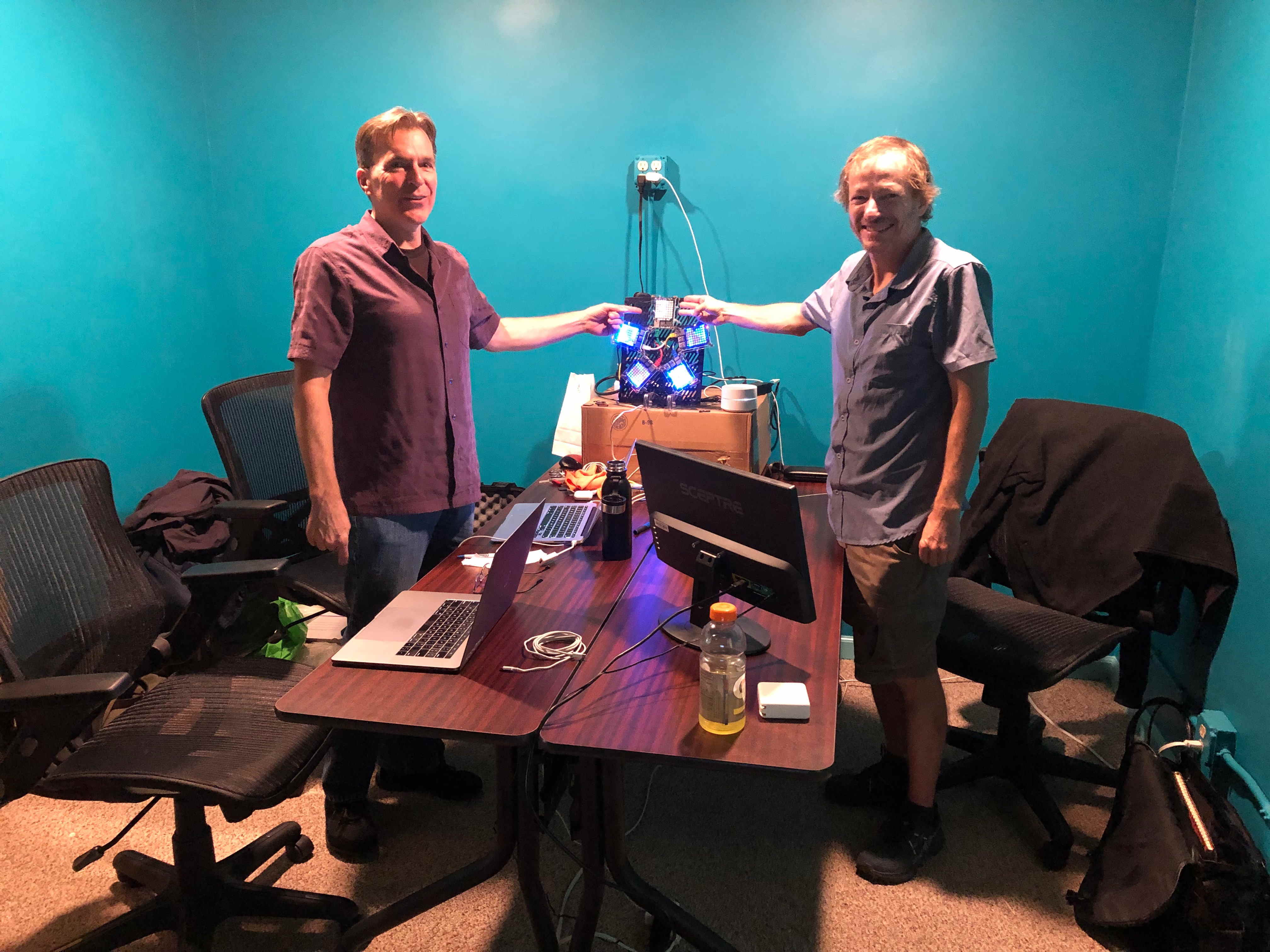
Steve Tarver and Jim Baker with Claudia
Here’s the Github repo for the project.
Not everyone worked on Claudia; Josh and Cody were spending time on a project they’ve been working on for our customer, and I was recovering from a previous week-long workshop so I mostly just observed and participated in discussions.
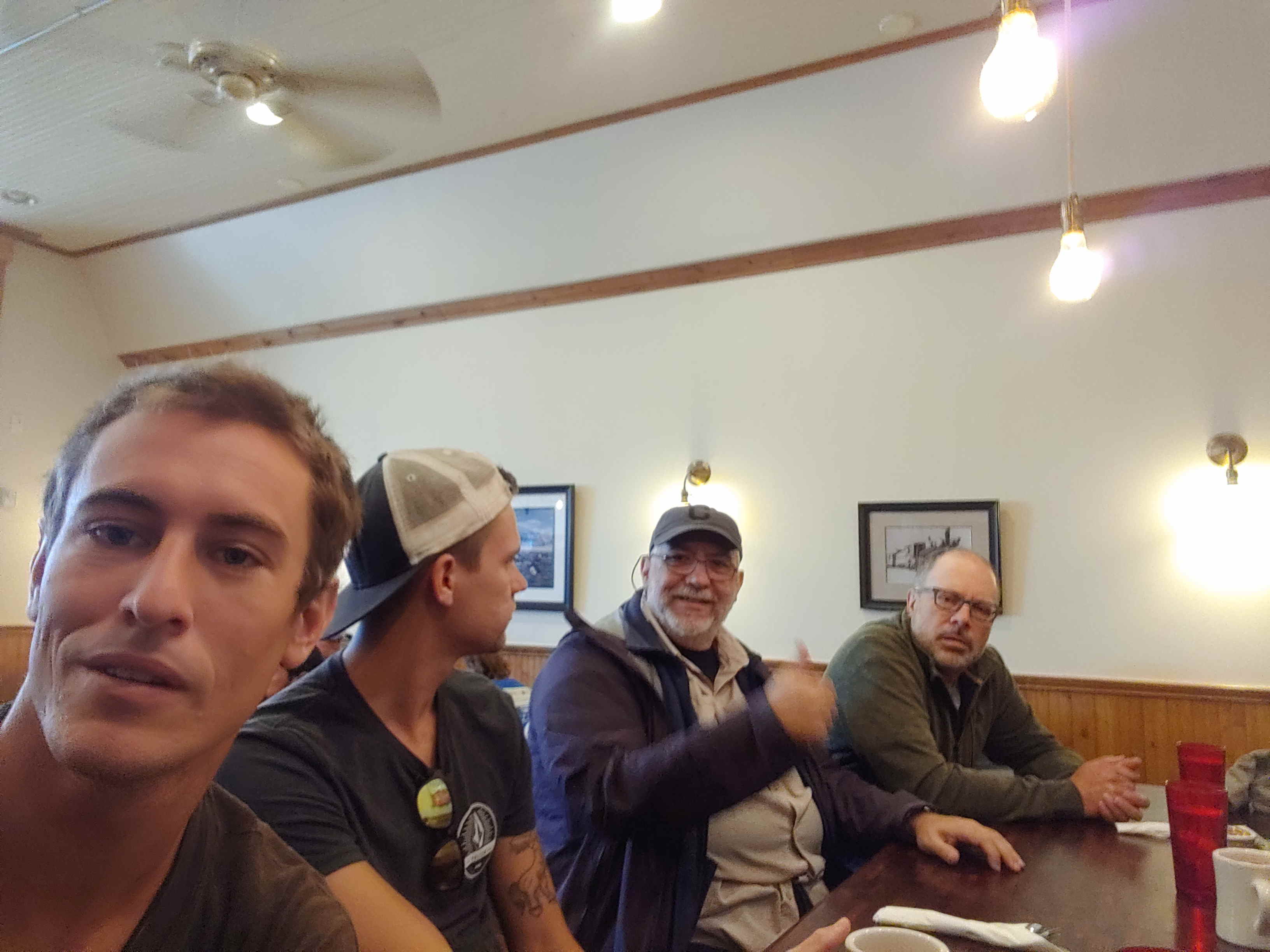
Cody Bontecou, Joshua Fry, Luciano Ramalho and Me having breakfast at McGill's in Crested Butte
Our friend Bill Frasure had his 30th birthday on the Blue Mesa Reservoir so we joined him on a rented pontoon boat, and our friend Joe brought his kayaks:
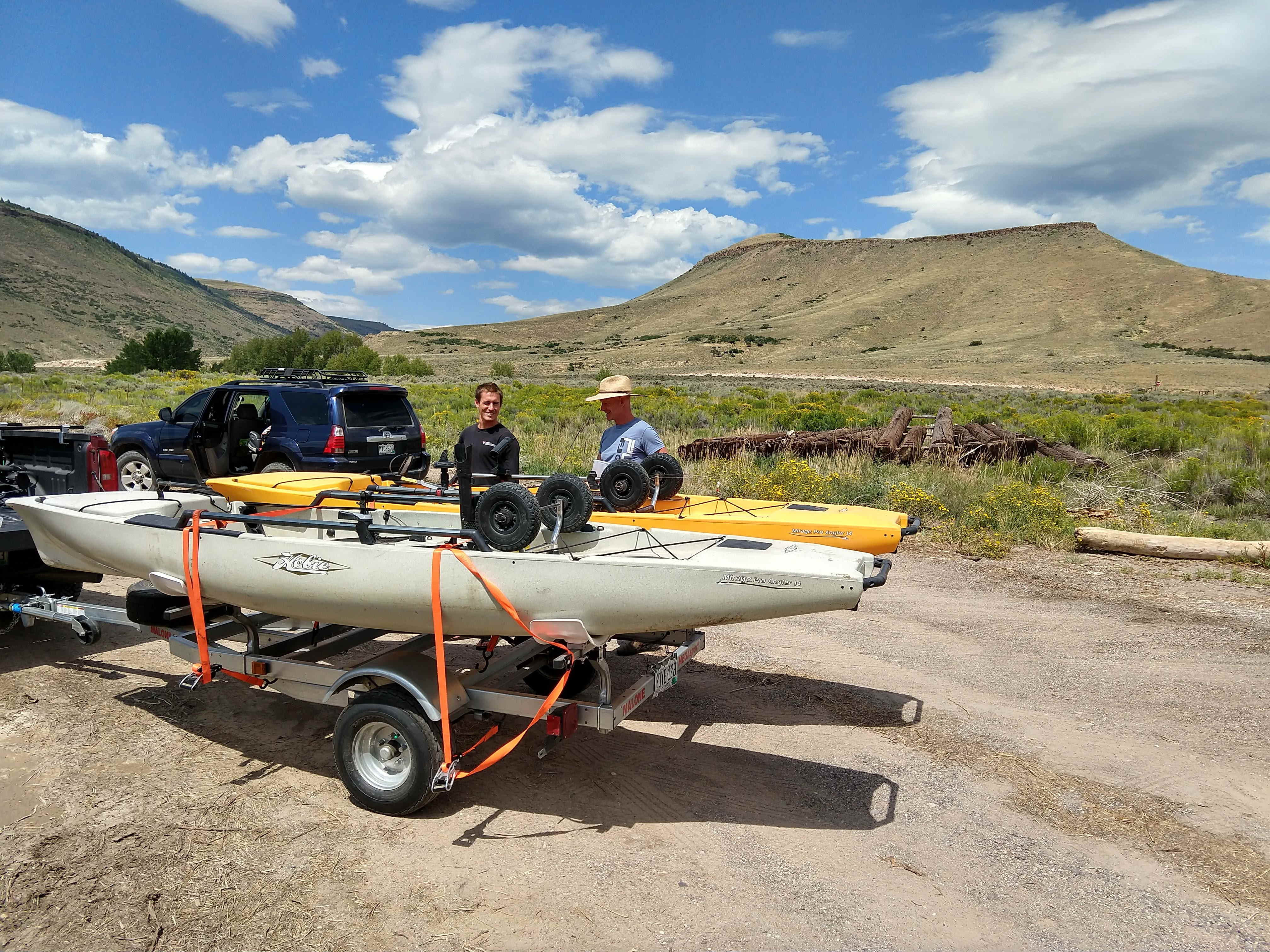
Cody and Joe Webber Unloading Kayaks at the Blue Mesa
This was such a pleasant experience that I’ve decided pontoon boating should be included as a possibility for future Summer events.
